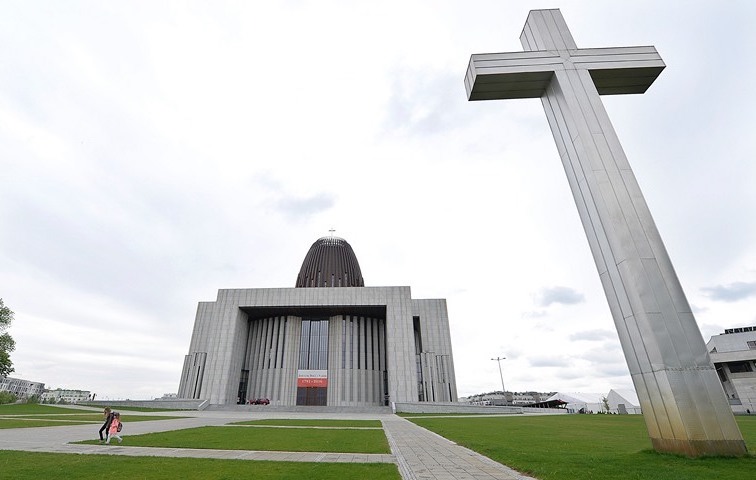The term “secular state” has become a catchall phrase increasingly used to push dangerous ideologies that demoralize individuals and destabilize national communities. This trend of aggressive neo-Marxism, driving towards atheism and dismantling identities, is evident across Europe and is being felt keenly in Poland.
The Left has just announced an end to “soft play” with the clergy, with politicians like Szymon Hołownia targeting Catholic Radio Maryja, Donald Tusk threatening Father Tadeusz Rydzyk in party documents, and the left-liberal coalition advocating for the removal of religion from schools. Rafał Trzaskowski has even gone so far as to mandate the removal of crosses from Warsaw’s city hall and ban prayers at ceremonial events. The question is who truly benefits from such Bolshevik traditions? Clearly, the aim here is not merely a secular state, which Poland already is, but rather to transform Poland into an atheistic collective, subservient to a neo-Marxist ideology.
Historically, Poland has endured religious persecutions and prohibitions against public expression of faith, both from invaders and communists, who spared no effort in their attempts. Despite severe repercussions, they failed to eradicate Catholicism from the Polish spirit. Now, this same attempt is being renewed by a new wave of neo-Marxist revolution, with its fervent activists now in power.
The state must not extend its influence, directly or indirectly, into the sphere of religious beliefs. It cannot claim the right to impose or forbid an individual or community from professing and practicing their faith publicly — a point underscored by Saint John Paul II. Regulations introduced by Trzaskowski blatantly violate Article 53 of the Polish Constitution, which guarantees freedom of religion and the right to its public expression.
The fervor with which the Tusk’s coalition attacks the Catholic Church is beginning to resemble escalating persecution. Where is the space for freedom here? A state should foster the development of its citizens, and politics should focus on prudent nurturing of the common good, as Aristotle once pointed out. How can penalizing and ostracizing Catholics, stigmatizing believers, and eliminating religious acts from public life possibly serve the common good, especially when, simultaneously, unrestrained expressions of LGBT+ ideology are encouraged?
Important voices from the Polish Episcopal Conference have emphasized that a hostile separation of Church and state harms human well-being. Church and state, independent and autonomous in their own spheres, are obliged to cooperate for the common good.
Meanwhile, progressive elements aim to destroy and purge Catholics through the ongoing demoralization campaign we are witnessing today. We are familiar with their concept of a “secular state,” previously championed by Marta Lempart and her so-called “Women’s Strike,” whose main slogans were abrasive and called for “national apostasy.”
Do we really want such a Poland? Neo-Bolshevism knows no bounds. It will continue to push further. Efforts to introduce a new “hate speech” law aim to muzzle normality, destroy media pluralism, block public debate, enforce political correctness, and degrade thought to fit mandatory ideological patterns.
It is time to decisively oppose this dangerously extreme neo-Marxist ideology, and let us not be misled into thinking this is a time to battle with the Church. The Church is us! Not just the Episcopate, not just the clergy, but also the vast number of laypeople — families, people serving in various social functions, and people responsible for various spaces of life, both private and public.
There is great strength and tremendous responsibility in all of us. An ideologized, warring minority has no right to dictate our lives. This is a moment of historical responsibility. We must bravely choose a side.





